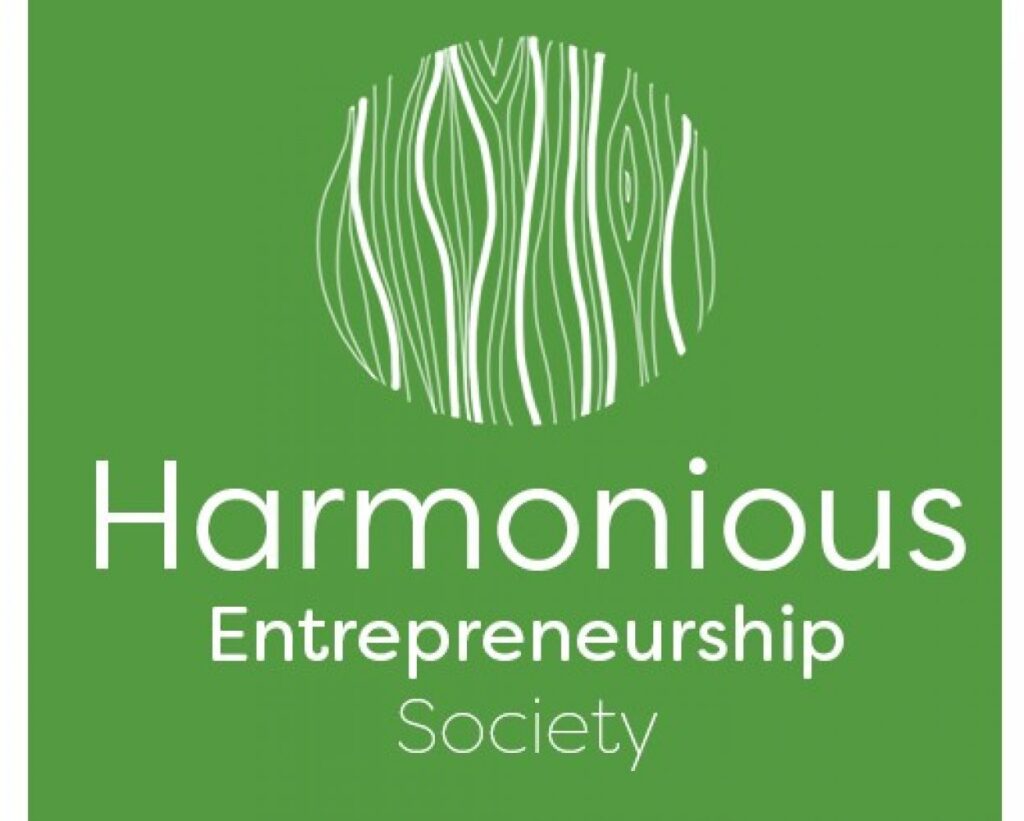A New Paradigm for Addressing Global Inequality
How entrepreneurs can move beyond profit maximization to create businesses that heal both people and planet
Research by Professor David A. Kirby and Dr. Felicity Healey-Benson, University of Wales Trinity Saint David
For centuries, entrepreneurship has been celebrated as an engine of wealth creation and economic development. Yet beneath this success story lies a troubling reality: the same entrepreneurial spirit that builds fortunes has also contributed to global inequality, environmental destruction, and the exploitation of vulnerable populations.
From the 17th-century East India Company’s devastating impact on Indonesia’s Banda Islands to today’s corporate practices that prioritize shareholder returns above all else, the business world has operated under a flawed assumption that maximizing profit justifies collateral damage to people and planet.
But what if there’s another way?
The Challenge: When Entrepreneurship Fuels Inequality
Traditional entrepreneurship operates under Milton Friedman’s 1970 doctrine that business exists to satisfy investors by “making as much money as possible.” This philosophy, while driving impressive economic growth, has created what researchers call the “global sustainability challenge”—a web of interconnected problems spanning inequality, environmental degradation, and social injustice.
The statistics are sobering. Income inequality has widened dramatically in recent decades, while access to basic necessities like clean water, healthcare, and education remains elusive for billions. Meanwhile, climate change and environmental destruction threaten the very foundation of human civilization.
A New Vision: Six Companies Leading the Change
Recent research has identified over 160 entrepreneurial ventures that are pioneering a different approach—one that addresses sustainability challenges while building profitable businesses. Six standout examples demonstrate how “Harmonious Entrepreneurship” can work in practice:
Aduna: Empowering African Farmers Through Superfoods
When Andrew Hunt founded Aduna in 2004, he created more than just another health food company. This certified B-Corp sources natural superfoods—including Baobab fruit, Moringa leaf, and raw Cacao—directly from over 3,000 small-scale African farmers.
The impact is transformative. In some of the world’s poorest regions, where hunger and malnutrition are prevalent, Aduna has helped raise average annual incomes from £9 to £119. The company employs 487 women to process fruits and partners with local conservation organizations, proving that ethical sourcing can drive both social change and business success.
Divine Chocolate: Giving Farmers Ownership
The global chocolate industry generates $100 billion annually, yet most cocoa farmers live in extreme poverty. Divine Chocolate, founded in 1998, flips this model by giving Ghanaian farmers 44% ownership of the business.
Through its partnership with the Kuapa Kokoo cooperative, Divine has generated over £100 million in sales while reinvesting 2% of turnover into its supply chain. The cooperative provides training programs, advocates for children’s education, and ensures fair wages—proving that chocolate can be both profitable and ethical.
SEKEM: Turning Desert into Opportunity
Perhaps the most ambitious example is Egypt’s SEKEM Holding, which has transformed 70 acres of desert into a thriving agricultural oasis. The company produces 150 organic products while training 477 farmers in biodynamic agriculture methods across 4,600 acres.
SEKEM’s holistic approach extends beyond farming. The company operates its own university, provides healthcare for employees, offers reduced education fees for workers’ children, and has graduated over 1,000 students from its vocational training center. In 2003, SEKEM received the Right Livelihood Award for demonstrating how business can integrate “profitability with humanistic and spiritual approaches.”
The August Company: Fashion with Purpose
In India, Vidhi Singhal founded The August Company after reading that plastic had been found in ocean depths of 36,000 feet. Her lifestyle brand creates contemporary women’s clothing that is eco-conscious and synthetic-free, sourcing fabrics directly from weavers and using waste materials for accessories.
The company’s “by women, for women” philosophy ensures 97% of employees and 100% of designers are women, paid fair wages with fixed salaries. For every product sold, a contribution goes to helping underprivileged girls, embodying Singhal’s belief that “when you help women, you help bring change in society.”
LittleLeaf Organic Cotton: Solar-Powered Sustainability
Lisa Ingram’s LittleLeaf sources organic cotton from India, manufactured in a 100% solar-powered factory certified by the Fair Trade Organization. The company ensures no forced or child labor, health and safety protections, fair pay, and reasonable working hours.
Beyond ethical production, LittleLeaf commits a portion of sales to charitable causes, starting with Harrys HAT, a charity supporting children born with hydrocephalus. This demonstrates how businesses can create positive impact throughout their entire value chain.
Ceilan: Ancient Wisdom, Modern Ethics
Drawing inspiration from Siddha medicine, one of the world’s oldest traditional medicine systems, Ceilan produces sustainable Sri Lankan skincare products in London. Founders Dr. Shelini Surendran, Christina Rai, and Pelin Oymaci source 100% natural ingredients from small-holder Sri Lankan farmers.
The company plants native trees to ensure climate resilience, uses no herbicides or pesticides, and has established The Ceilan Foundation to improve farmer livelihoods through fair trade agreements and community empowerment programs.
The Harmonious Entrepreneurship Model
These six companies share common characteristics that distinguish them from traditional business models:
Triple Bottom Line Focus: Rather than prioritizing profits alone, they balance profit, people, and planet in all decisions.
Stakeholder Orientation: They serve customers, employees, suppliers, and communities—not just shareholders.
Systemic Thinking: They recognize that economic, environmental, and social challenges are interconnected and require integrated solutions.
Long-term Perspective: They prioritize sustainable practices over short-term gains.
Values-Driven Leadership: Their founders are motivated by purpose beyond personal wealth accumulation.
Addressing the UN Sustainable Development Goals
These companies collectively address multiple UN Sustainable Development Goals, including:
- SDG 1 (No Poverty) and SDG 10 (Reduced Inequalities) through fair wage practices and community development
- SDG 5 (Gender Equality) through women’s empowerment programs
- SDG 8 (Decent Work and Economic Development) through ethical employment practices
- SDG 12 (Responsible Consumption and Production) through sustainable sourcing
- SDG 13 (Climate Action) through environmental restoration and carbon-conscious practices
The Path Forward: A New Paradigm
The research reveals that addressing global inequality requires what the authors call “Harmonious Entrepreneurship”—a systemic approach that integrates economic, environmental, and social considerations from the outset, rather than treating them as separate concerns.
This paradigm shift challenges Friedman’s shareholder primacy doctrine while embracing his lesser-known requirement that business should conform “to the basic rules of society both those embodied in the law and those embodied in ethical custom.”
As Einstein observed, “we cannot solve our problems with the same thinking we had when we created them.” The companies profiled here demonstrate that entrepreneurship can indeed address inequality—but only when entrepreneurs embrace a fundamentally different mindset about the purpose of business.
The Business Case for Change
Critically, these companies prove that doing good and doing well are not mutually exclusive. They generate healthy profits while creating positive social and environmental impact, suggesting that Harmonious Entrepreneurship may not just be morally superior—it may be economically superior as well.
In an era when consumers increasingly demand corporate responsibility, investors prioritize ESG criteria, and employees seek purpose-driven work, businesses that embrace Harmonious Entrepreneurship may find themselves better positioned for long-term success.
The question isn’t whether business can address global inequality—these companies prove it can. The question is whether enough entrepreneurs will embrace this new paradigm to create the systemic change our world desperately needs.
 This article is based on research published in the Journal of Entrepreneurship in Emerging Economies and the ICSB Annual Global Micro-, Small and Medium-Sized Enterprises Report 2024, edited by Dr. Ayman ElTarabishy and Dr. Rico Baldegger.
This article is based on research published in the Journal of Entrepreneurship in Emerging Economies and the ICSB Annual Global Micro-, Small and Medium-Sized Enterprises Report 2024, edited by Dr. Ayman ElTarabishy and Dr. Rico Baldegger.

